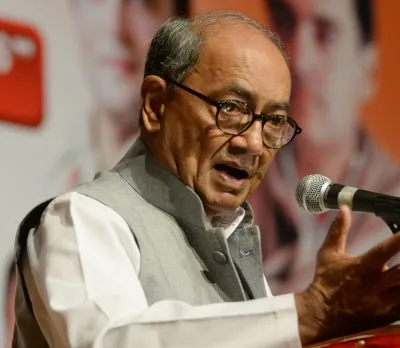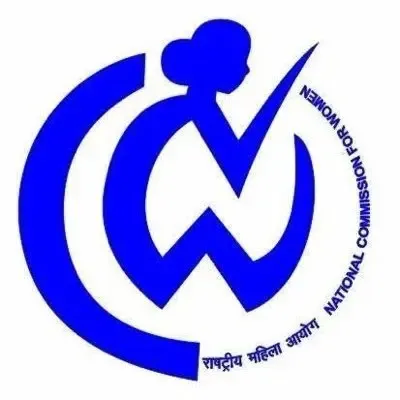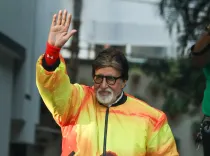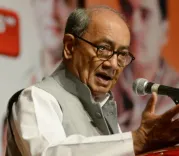How Are Gandhi and Kharge Committed to Advocating for Tribal Rights?
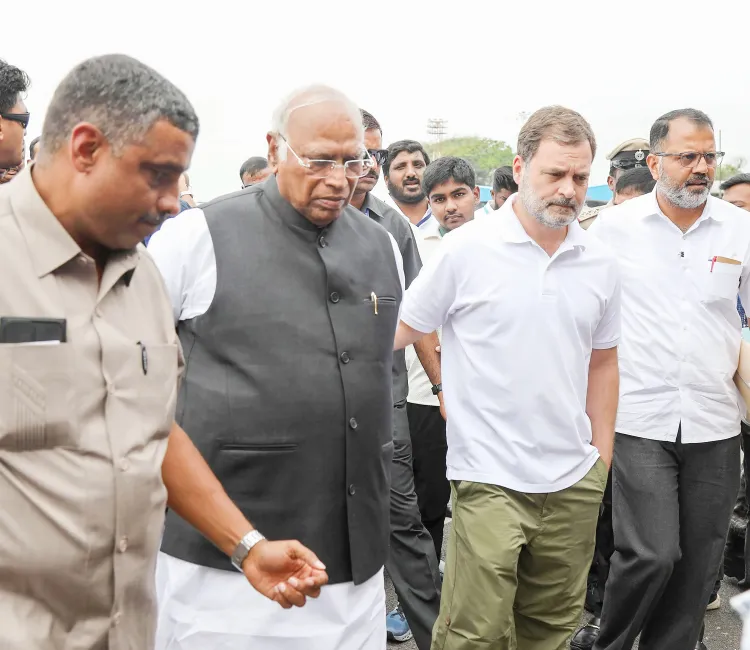
Synopsis
Key Takeaways
- International Day of the World's Indigenous Peoples is observed on August 9.
- Leaders like Rahul Gandhi advocate for the rights of tribal communities.
- The day aims to raise awareness about indigenous cultures and challenges.
- It highlights the contributions of tribal communities to environmental conservation.
- The UN established this observance to protect indigenous rights globally.
New Delhi, Aug 9 (NationPress) On Saturday, Congress leader Rahul Gandhi spearheaded a gathering of party members to honor tribal communities on the International Day of the World's Indigenous Peoples, also referred to as World Tribal Day. He pledged to support their struggles for rights. Taking to X, the Leader of the Opposition in Lok Sabha expressed, “Warm wishes to all tribal brothers and sisters on World Indigenous Peoples' Day. Your traditions and life values have significantly enriched India's identity.”
Gandhi further conveyed his solidarity with the tribal communities in their quest for justice. “You are the original inhabitants of India, and we are with you in your pursuit of rights, dignity, and justice,” he posted.
On this occasion, Congress National President Mallikarjun Kharge also extended his wishes to the tribal populace.
“Heartfelt congratulations and best wishes to all members of our tribal society on World Indigenous Peoples' Day. Our goal is to conserve water, forests, land, and tribal civilization and traditions, and the Congress Party is completely committed to safeguarding your interests,” Kharge stated on X.
The International Day of the World's Indigenous Peoples is commemorated annually on August 9 to advocate for and protect the rights of indigenous populations globally.
This day is designed to enhance awareness regarding the unique cultures, social challenges, and contributions of tribal communities worldwide.
Tribal communities play a vital role in environmental conservation and sustainable living, which this day seeks to celebrate and recognize.
Instituted by the United Nations General Assembly in December 1994, August 9 was selected to honor the inaugural meeting of the UN Working Group on Indigenous Populations in 1982. This observance encourages global initiatives to defend indigenous rights and cultures.
According to the UN, this day symbolizes the acknowledgment of the fundamental rights of indigenous peoples, who, despite comprising around 5-6 percent of the global population, frequently experience marginalization, poverty, discrimination, and limited access to education and healthcare.
This occasion is crucial for enhancing global awareness, promoting the rights of indigenous peoples, preserving their cultures, and fostering social justice and equality on an international platform.



